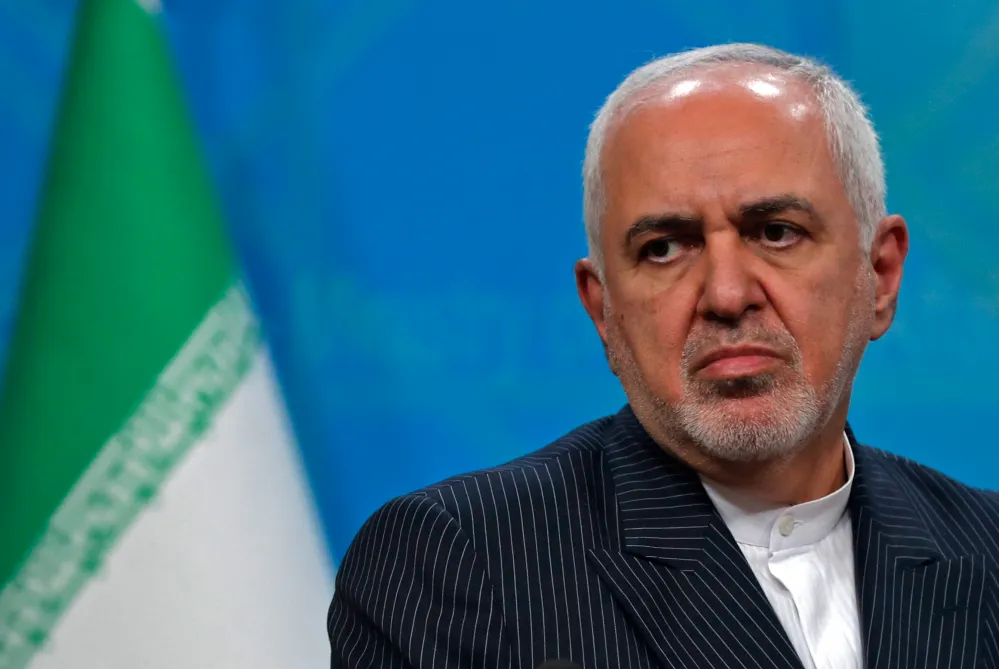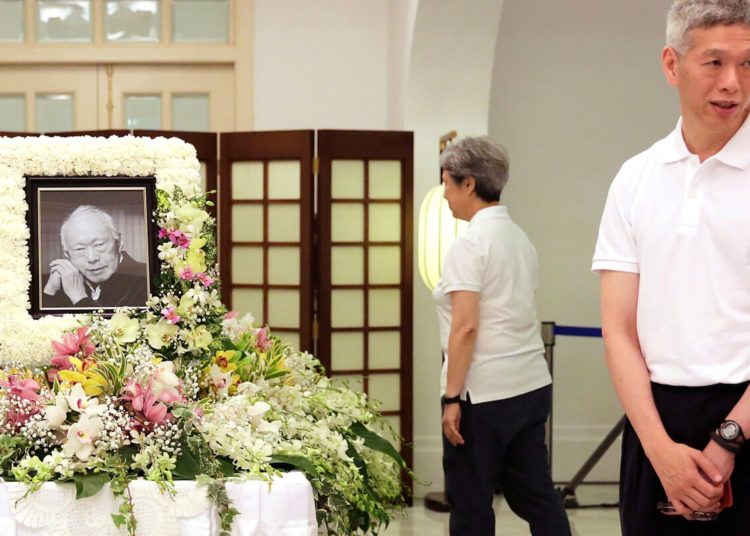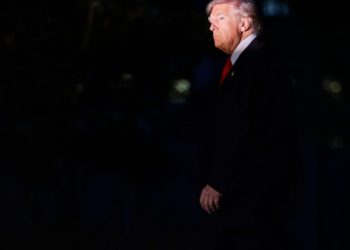Over the last decade or so, Mohammad Javad Zarif has been the most prominent face of Iranian diplomacy. As foreign minister between 2013 and 2021, Zarif negotiated the Joint Comprehensive Plan of Action (JCPOA), also known as the Iran nuclear deal, and represented a faction in Tehran that saw some benefit in diplomacy with the West. But today, the nuclear deal is in tatters, Iran suffered humiliating attacks by Israel and the United States during a 12-day war in June, and proxy groups such as Hamas and Hezbollah have been decapitated. What does Tehran have to show for its foreign policy?
On the latest episode of FP Live, I spoke with Zarif, now an independent analyst. Zarif was most recently Iran’s vice president for strategic affairs but stepped down in March. Watch the full discussion on the video box atop this page, or listen to the FP Live podcast. What follows here is a lightly edited and condensed transcript.
Ravi Agrawal: Let me start with the so-called 12-day war in June. To recap, Israel launched a series of attacks on Iran’s military and nuclear facilities, killing several top military leaders and nuclear scientists. Then America joined in and bombed three nuclear sites. Tehran’s response was quite muted. You weren’t in government when this happened, but you are, of course, well connected in Iranian politics. From my perspective, the 12-day war seemed extremely damaging for Iran. Was it?
Mohammad Javad Zarif: The 12-day war occurred just two days before my friends in the Foreign Ministry were supposed to go for a new round of negotiations with their American counterparts. It created an image in Iran that negotiations for the United States were just a pretext for an attack, which is very damaging. From my perspective, I believe in diplomacy. This was very damaging to diplomacy in general.
Secondly, it was a premeditated attack, not only against military and nuclear targets but against innocent civilians. Many innocent civilians were killed. Military leaders were not targeted in their offices or on the war front, but they were targeted at home, when they were sleeping with the children and spouses. According to what I know of international law, that constitutes a war crime. Nuclear scientists, as well as other scientists, were murdered only because they were scientists. This is an extremely dangerous precedent that these people were murdered.
RA: But respectfully, that doesn’t answer my question. How damaging was this for Iran?
MJZ: Iran was damaged. This was an aggression, and all aggressions usually damage the victim. But a myth of Israeli invincibility was shattered. Iran has been under sanctions for 40 years; nobody sells Iran any military equipment. But with all of that, Iran was capable to break the so-called Iron Dome of the Israelis and was able to attack Israeli military targets from Iran only with its missiles, drones, and cruise missiles. We were damaged, but we showed one thing that is important for everybody to understand: Iran is not an easy prey. Israel and the United States—two nuclear-armed powers—came together to attack Iran, and, at the end of the day, Iran was standing tall. That’s quite a major achievement for Iran.
RA: Tell me how you interpret Iran as “standing tall” after its nuclear facilities were damaged, or even destroyed, as the White House says. Iran’s air defenses were basically taken out of the game. So many nuclear, military, and political personnel were killed.
MJZ: Obviously, we were the victim of an unprovoked attack, of an aggression, basically a surprise attack. We were damaged, but that’s not the point. The point is we responded. We showed that we cannot be targeted and that the aggressor faces consequences. Even the United States was convinced that Iran will not simply take it sitting down. President [Donald] Trump himself pointed out that they understood Iran would retaliate. And that is why they emptied all of the barracks in our neighborhood. That’s an important point to note for the future: Dealing with Iran in this way will not resolve your problem, will not resolve America’s problem, will not solve anybody’s problem.
RA: Here’s one thing I genuinely don’t understand. It’s well known that Iran funds groups like Hamas and Hezbollah and the Houthi rebels. And meanwhile, respectfully, the Iranian economy has gone from bad to worse. You have some 60 percent unemployment among working-age Iranians; inflation is at 35 percent; GDP per capita is half what it was in 2012. Iran used to be a great empire; its economy today is smaller than that of Bangladesh or Chile. How is any of this in Tehran’s strategic interest? Explain to me what Iran gets out of pursuing conflict with Israel or the perception that it is pursuing a nuclear bomb, which leads to this kind of a response from the West.
MJZ: We have a process of securitization that Israel and particularly [Prime Minister Benjamin] Netanyahu have been following against Iran since the ’90s. If you listen to Netanyahu, in the mid-’90s he said Iran was six months away from a nuclear bomb. We’re about 30 years from then, and we are still, at least before the bombing, a few months away from the bomb. So Iran is not seeking a nuclear bomb. That’s a hype. We’re not responsible for the narrative that Israel tries to create.
Let me make one point here that I think is important. The existential threat to Israel is peace. That is why it objected to the JCPOA. The JCPOA, which I negotiated, would have made certain and verifiable that Iran did not produce a nuclear bomb. Why did Israel object to that? Because it created calm in our neighbor.
As for the groups that are fighting Israel, let’s not forget the fact that they’re fighting occupation. They’re fighting tyranny; they’re fighting genocide; they are fighting mass starvation. They aren’t fighting for Iran. I can tell you that in my 40 previous years of experience as a diplomat, I did not see a single shot being fired by these groups to advance Iranian interests. They were fighting for their own lives, for their home.
RA: Everything you’re saying here about Israel, I’ll leave to the Israelis to defend. But let’s say you’re right that Iran doesn’t want a bomb and that if it wanted a bomb, it could get a bomb. The perception, after Oct. 7 [when, in 2023, Hamas attacked Israel], that Iran has funded proxy groups is damaging. What does Iran get out of this? Because the offshoot of it, as you yourself are admitting today, is that the Iranian economy is suffering; Iran has faced these attacks from America and from Israel.
MJZ: Did we cause that? You are replacing the cause and effect. The cause of all of this is occupation. The cause of all of this is apartheid. The cause of this is genocide in Palestine. We did not cause that. Hamas did not take orders from Tehran in order to attack or defend itself. It was in a process of back-and-forth that we have seen since Oct. 7.
You say Iran’s economy has suffered. The United States and Iran are engaged in a zero-sum game, and in a zero-sum game, everybody will suffer. The United States was capable, through maximum pressure of President Trump, of seriously damaging the Iranian economy. But was the objective to damage the Iranian economy? If their objective was to limit Iranian nuclear capabilities, Iranian nuclear capabilities have grown 10 times between when President Trump took office the first time and now. So we suffer in our objectives of growing and developing. But the United States also suffered.
I spent many days and months with [then-U.S. Secretary of State] John Kerry in Vienna in order to reach [the nuclear] agreement. We did not break that agreement. Somebody else broke that agreement, so we should not be blamed for the consequences of somebody else’s bad faith.
RA: It is not my job to defend an American or an Israeli administration. As an analyst, I have criticized the Trump administration’s withdrawal from the JCPOA.
But again, at the crux of this, why is Iran’s current posture in its strategic interest? What you’re describing as a genocide in Israel, let’s say all of that is correct. Why must the Iranian people suffer? Because I’m not seeing the Saudi people suffer. I’m not seeing the Turkish people suffer. I’m not seeing the Egyptians suffer. I’m not seeing Iraqis suffer. You can disagree as to whether Iran is building a bomb and funding all these groups, but that perception is ultimately what is hurting Iran. Therefore the question remains, why not change that perception?
MJZ: I wrote in your magazine about a different future and a different paradigm, so I’m all for a different future.
But let’s talk about the past. Who started this? Who destroyed JCPOA? We negotiated in good faith. We spent a lot of time. Benjamin Netanyahu has written that it’s his life’s mission to destroy the agreement applauded by the entire international community. Now he has been able to sell a lie to the international community. In 1990, when Israel decided to start the so-called peace process—which it never intended to be a peace process—with the Arab world, it decided to replace its enemy. And that enemy became Iran. Before that the enemy was Palestinians, terrorists, and Arabs. Then all of a sudden, it started to be an Iranian threat. Even biblical stories were changed, from Cyrus to Esther and Mordecai and Purim. Purim was represented as a historic anti-Iran perspective.
Why is it that one person can lie to the American people, to the international community, at the expense of the United States and at the expense of the international community only in order to survive? Netanyahu is doing this only in order to survive. His survival depends on cleanups; his survival depends on crises. And that is why immediately after the 12-day war, he started the war against Syria. Immediately after the Syrian war, he started the total occupation of Gaza. He has rejected every peace offering.
RA: Let’s move on. The so-called E3—Britain, France, and Germany—are talking about snapback sanctions, to reimpose certain U.N. sanctions on Iran. Could this be a moment where reformists in Iran might be in the ascendancy? Might Iranians be willing to talk to the United States again for another nuclear deal?
MJZ: Let’s not confuse domestic and foreign policy. I think what the E3 are trying to do is, first of all, unfounded because Iran was observing fully the JCPOA, even a year after Trump left it. Europe failed to implement its own commitments. After Trump withdrew from the JCPOA, the Europeans urged us not to stop. They made 11 commitments in two sessions, in June and September of 2018, to me personally. They were not able to even implement one of them. They decided to create a 19th-century barter agreement with Iran. They were not even able to do that.
Now, I don’t know what audacity they have in order to try to use the dispute resolution mechanism. It’s not called snapback in the JCPOA or the [United Nations] Security Council. It’s called “dispute resolution mechanism.” Iran resorted to the dispute resolution mechanism during the time that I was foreign minister, many times. We went through the entire process. The Europeans promised to implement some of their own commitments, let alone American commitments, and they failed. And that is why we took remedial measures. They cannot take remedial measures against remedial methods, legally speaking.
The timing is interesting, too, because a few weeks ago, as I wrote in Foreign Policy, they were basically applauding Israeli violation of international law attacking Iranian sites. I mean, the German chancellor said that Israel is doing “dirty work … for [all of] us.” So, which option? They use war, and then they use diplomacy, and then they use mechanisms to resolve disputes. This is indicative of bad faith.
Moving away from legalities, what good does it do to them? What did President Trump gain by withdrawing from JCPOA? Do we live in a safer world today? Will Europe live in a safer world if they use this dispute resolution mechanism in bad faith in order to go back to Security Council resolutions that we all decided to stop? What are they trying to gain? They try to support Israel. Some of them, including the E3 that are trying to use this mechanism, even went as far as calling it self-defense. They should go back to their policy drawing board and see what this is going to gain them. What are they going to get? I think there are diplomatic ways of moving forward. I wrote an article in the Guardian talking about a Middle East network for nonproliferation and nuclear cooperation. I wrote in your paper talking about a nonaggression pact.
RA: I wanted to bring up that article. Now, it’s not for me to defend European policy or the United States’ policy here, but I can challenge both sides, and I can challenge you as well as a journalist. So, in that Foreign Policy article, you wrote that Iran can go from “an approach centered on confronting perpetual threats to one focused on exploiting opportunities.” You went on to say this “is not only feasible but profoundly in the interest of Iran.” Elaborate a little bit on this. I’ve been pushing you on whether anything that’s happened in the past is in Iran’s interests. I couldn’t quite understand how it was, but looking to the future, what would a better domestic and foreign policy look like for Iran and for the Iranian people?
MJZ: Well, you talk about whether it was in Iran’s best interest, had Iran had other options. You don’t have other options when you’re attacked.
RA: But Iran does not need to fund Hamas. It doesn’t need to fund Hezbollah.
MJZ: You gave examples of Arab countries; every single one of them supports these groups. Every single one of your allies supports these groups. Qatar supports them. Turkey supports them. Hamas’s officers are stationed in Qatar. Israel is trying to distract attention from its atrocities to Iran. This is not Iran’s war. This is Israeli aggression against Palestinians. If the Israelis try to divert attention from the real cause by simply picking on Iran, it will not resolve the problem.
I said that Iran has been subjected to humiliation for the past 220 years. Now, for the first time in 220 years, Iran was capable of showing the world that it can stand up against two nuclear-armed powers and respond to them and not get down to its knees, as President Trump once said. I’m not here representing the Iranian government. I’m now speaking as an analyst and as somebody who hopes to have a better future in our global relations. But I can tell you that the Iranian people did not surrender. It wasn’t just the Iranian government; the people stood with the nation, not necessarily with the government, in order to confront external aggression.
Now we have proven that we have a solid foundation to look to the future. That future can be a future of opportunities, a future of possibilities, and we can see possibilities in the nuclear deal by a consortium. We can see possibilities in the route from Nakhchivan to Azerbaijan. We proposed a consortium of 3+3—Iran, Russia, Turkey, Azerbaijan, Armenia, and Georgia—when I was foreign minister. Now we can implement that even with American contractors doing the contracting work. This will provide security and prosperity for the region. We can have cooperation in the nuclear field, in other fields, with our neighbors in the Arab world.
This requires a change of paradigm, but it takes two to tango. Iran alone cannot do this. The United States should also recognize that the policy of confrontation, the policy of trying to put pressure on Iran—call it crippling sanctions during [the] Obama [administration], or call it maximum pressure during Trump 1—none of these has worked. What you see today is a more capable Iran. Destroying Iranian nuclear sites did not destroy Iran’s nuclear capability because that capability resides in the minds of Iranian scientists. Now, I know that Israel committed war crimes by killing scientists and their families, but they cannot kill hundreds of people who know how to advance nuclear technology. So we have that technology. It is wishful thinking to believe that by bombing three sites, they have destroyed that. So the best way is to put that within a framework. We tried to do that in the JCPOA; now we can do it in a regional framework so that everybody can rest assured that this will be only for peaceful purposes. I can tell you as somebody who negotiated the JCPOA that this is quite possible, provided that we decide to break from the past and look at the future. We are now prisoners of the past, and we are doomed to repeating the failures of the past.
RA: Trump seems to want to strike lots of peace deals around the world right now. Might he want to strike a new nuclear deal with Iran or change the paradigms, as you’re describing?
MJZ: I think President Trump is quite capable of doing that. He’s interested in doing that. There’s only one condition: Stop listening to Bibi.
RA: Do you think he is likely to do that? [To stop listening to Netanyahu?] If you were in one of your old jobs, how would you convince him to do that?
MJZ: I would convince him of his previous decision. He has written in the past, and Netanyahu has written, that the U.S. withdrawal from the JCPOA was motivated by Netanyahu. It didn’t serve American interests. It didn’t serve global interests. We don’t need to be prisoners of the past, but we can learn from the past. And President Trump is in a position to have a different future. That future is within reach, provided that he stops hoping for things that he will never be able to achieve. Iran is a millennia-old country. We have gone through aggressions, invasions, but we have remained. We have stood tall after all of this. We will continue to be a vibrant civilization state, as we have been the oldest civilization state. Let’s recognize it and deal with that.
I said there is a need for a paradigm shift. But there is a need for paradigm shift on all sides. I hope that all sides are ready to do that.
RA: As an analyst now, when you look at President Trump in his second term, from an Iranian perspective, what has his impact on the world been like?
MJZ: Well, the jury is still out, but there hasn’t been much achievement yet. So we should look at different opportunities, different avenues. Bombing Iran was certainly not a way to be the “President of Peace”—and bombing Iran right in the middle of the negotiations of your own envoy. Who will trust the United States from now on? Who will try to negotiate with the United States from now on? I have a hard time convincing people in Iran that diplomacy is worth trying because of what President Trump did. Is that the impact that he wants to leave? To prove that the only way with the United States is to confront the United States? That the only language that the United States can listen to is a language of force? Is that a legacy that they want to leave? What would it gain the American people? Would it make America great again to bomb other countries, bully other countries, disrespect the leaders of other countries? Would that make any country great? We learn through our millennia of civilization that respect begets respect.
RA: Do you think the world is shifting toward a post-unipolar order? What does that look like to you?
MJZ: I believe we never had a unipolar world order. I believe there was an illusion of a unipolar world order, and that illusion ended with the Baker-Hamilton report of 2006 [on the Iraq War]. The United States tried to use its military supremacy from 1990 to 2004 in order to create a unipolar order against the possibilities of the rise of China and other developers. The Baker-Hamilton report put an end to that illusion.
We are now moving to a post-polar world where you have competing interests in various levels. On the level of military power, obviously the United States spends many times more than other countries. Probably almost three times more than China, 10 times more than Russia and other countries. So it has military capability. But has military capability been able to provide America security? I lived in New York for a long time, and I remember visiting New York after 9/11, and even in the look of Americans, New Yorkers, you could not feel security. The U.S. government could not even provide security to its own citizens, which is the first order of business for any government. In the military realm, certainly the United States is the most capable, but that doesn’t bring prosperity and security. In the economic realm, we certainly have several actors. We have nonstate actors in the security field, from ISIS to others who have acted in the security field. Now we have nonstate actors in the technology field who are surpassing governments in terms of capability.
We have moved away from our traditional concept of polarity. But there is another element that is important. Polarity requires loyalty, and now countries have understood that permanent loyalties do not exist anymore. People have woken up to the reality that we have issue coalitions and short-term coalitions. Long-term alliances are things of the past. All of these combined will put us in a situation when hegemony is impossible. Hegemonic tendencies may continue to exist, both globally and regionally. But we have such a complicated world, where it is impossible to have a hegemon—global hegemon or a regional hegemon. Let’s try to build a different future. And that different future is a future based on possibilities. Not a future based on threat.
The post Tehran’s Message to Trump: ‘Stop Listening to Bibi’ appeared first on Foreign Policy.




